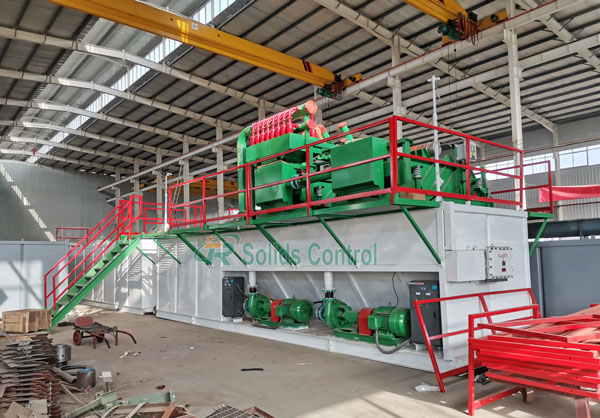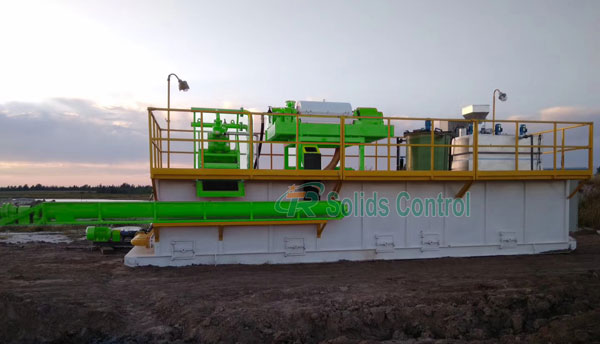Solid control equipment systems (also known as drilling fluid solid control systems) are critical for maintaining the performance and stability of industrial fluids, particularly in drilling operations. These systems integrate multiple devices to separate, clean, and recycle solid particles from drilling fluids, ensuring operational efficiency, cost savings, and environmental compliance. Below is an overview of their key application fields :
In oil and gas exploration, solid control systems are indispensable for:
Removing harmful solids (rock cuttings, sand) from drilling mud to preserve its density, viscosity, and lubricity.
Extending mud lifespan by recycling cleaned mud, reducing fresh mud consumption and waste disposal costs.
Preventing wellbore instability caused by excessive solid accumulation, which can lead to stuck pipe or blowouts.
Enhancing drilling efficiency through optimized mud properties, lowering torque and drag on drill strings.
Typical Equipment: Shale Shakers, desanders, desilters, centrifuges, and vacuum degassers.
HDD projects require high-performance mud systems to:
Maintain mud rheology (flow and lubrication) for smooth borehole creation and pipe installation.
Minimize equipment wear by removing abrasive solids from the mud, extending drill bit and pipe lifespan.
Reduce pulling force during pipe retraction by ensuring low-friction mud properties.
Case Example: In cross-river pipeline projects, solid control systems improve mud quality, enabling successful drilling in complex geological formations.
For geothermal energy exploitation, solid control systems:

Purify drilling fluids contaminated with rock fragments and thermal fluids, ensuring sustainable mud reuse.
Lower operational costs by minimizing fresh mud consumption and waste treatment expenses.
Protect geothermal reservoirs from blockage caused by solid particles, maintaining long-term production efficiency.
Technical Advantage: High-temperature-resistant centrifuges and corrosion-resistant materials are often employed.
In mining operations, solid control systems are used for:
Dewatering slurry to recover valuable minerals (e.g., coal, gold) from tailings.
Reducing environmental impact by treating wastewater to meet discharge standards.
Lowering tailings dam risks through solid-liquid separation, preventing dam failures.
Application Scenario: Gold mines use centrifuges to extract fine gold particles from slurry, improving recovery rates.
Solid control systems play a role in:

Municipal sewage treatment by separating sludge from wastewater for safer disposal or reuse.
Industrial wastewater management in sectors like paper mills or chemical plants, where solids must be removed before recycling.
Soil remediation by filtering contaminated slurry during groundwater cleanup projects.
For tunneling and foundation engineering, these systems:
Stabilize excavation sites by controlling mud properties in slurry shield tunneling.
Prevent ground collapse by maintaining proper fluid pressure in boreholes.
Improve drilling speed in urban subway construction through efficient mud recycling.
Technical Evolution and Global Trends
Automation Integration: Modern systems incorporate SCADA (Supervisory Control and Data Acquisition) and PLC (Programmable Logic Controllers) for real-time monitoring and remote operation.
Modular Design: Portable, skid-mounted units enable rapid deployment in remote areas (e.g., offshore platforms or desert oilfields).
Eco-Friendly Solutions: Zero-discharge systems and closed-loop mud circulation reduce environmental footprints.
Solid control equipment systems are versatile tools spanning petroleum, geothermal, mining, environmental, and construction sectors. By optimizing fluid performance, cutting costs, and ensuring compliance, they drive sustainable industrial development worldwide. As technology advances, these systems will continue to evolve toward (intelligence) and green efficiency.

Address: No.2 Hu·ochang Rood, Yangling District, Xianyang City, Shaanxi Province, China
Tel: +86-13186019379
Wechat: 18509252400
Email: info@mudsolidscontrol.com
Contact: Mr.Li